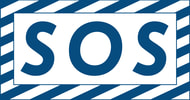In the News
Bill Information
HB24-1235 Reduce Aviation Impacts on Communities
Concerning measures to reduce the impact of aviation on surrounding communities.
Concerning measures to reduce the impact of aviation on surrounding communities.
House Transportation, Housing & Local Government [Mar 06, 2024]
HB24-1235 starts at approximately 6:06:00.
HB24-1235 starts at approximately 6:06:00.
From the bill Sponsor Rep. Brown:
The strike below is very similar to the bill that was introduced. Specifically, the amendment,
The strike below is very similar to the bill that was introduced. Specifically, the amendment,
- Designates state funding of up to $1.5 million in aviation fuel tax money each year to help transition away from leaded fuel.
- Makes state airport funding contingent on airports working with their communities to establish noise abatement plans and plans to transition away from unleaded fuel. These plans must be communicated to flight schools and pilots and posted publicly on websites.
- Expands the allowable uses of the state’s aviation grant program to include funding for infrastructure that will accelerate our state’s transition away from leaded aviation fuel.
- Provide funding to airports so they can subsidize unleaded aviation fuel.
- Expands membership on the statewide aeronautics board (who hands out grant funding to airports) to add members from communities like superior so we have a voice in statewide aviation funding decisions.
- Instruct the Division of Aeronautics and the Department of Public Health and Environment to continue to aid airports and communities regarding both noise and lead issues.
- Creates a tax credit for aircraft owners to convert or have their planes certified to use unleaded aviation fuel
- We are no longer increasing fees on leaded fuel. Since we are able to redirect existing aviation fuel taxes for the purposes of transitioning away from leaded fuel, this is no longer necessary.
- We have removed references to CDOT's ability to apply for federal funding on behalf of airports. Airports can apply directly to FAA for federal funding and nothing in the introduced version or the amendment would have prevented that (or could have prevented that). So while the bill will withhold state money from airports that do not have plans in place to transition away from leaded fuel and deal with noise, the state government is not able to impact the flow of federal funds to local airports.
- The amendment removes the requirement that CDOT and CDPHE install noise monitoring systems. Non-partisan legislative staff determined this would cost approximately $8 million. Unfortunately, the state does not have a budget for this at this time and keeping this in the bill would have killed the bill.

